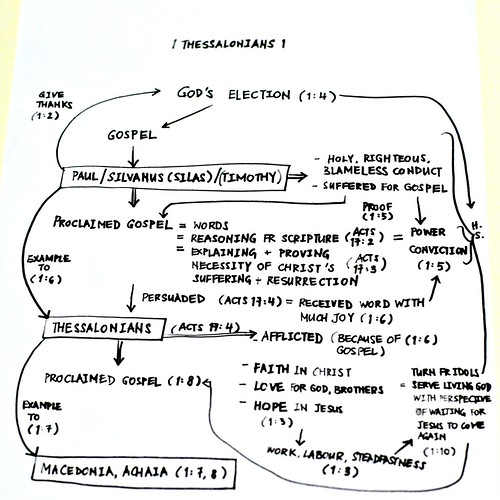Hopes and Expectations. Black Holes and Revelations. John 5:1-29.
But perhaps even now, anywhere in the world and at any point of time, people can gather united in the name of God, yet the great tragedy might be that even a premier bible-teaching church may reject the very Saviour they claim to proclaim.
Read John 5:1-29
Q: It's a remarkable thing to heal a man who has been lame for 38 years with just a word. But what was the special significance of the healing of the lame man to a Jew?
Read Isaiah 35:3-7. Isaiah prophesised that when God came to rescue his people, inter alia, the lame man would leap like a deer. This was a sign that God's Saviour had come.
Q: What was significant about the day on which the healing took place?
Read Deuteronomy 5:12-15. Sabbath was a day of rest instituted by God when God's people were meant to remember God's rescue of them from slavery in Egypt (and a future rest/rescue). It should have been doubly significant for them that the sign of the Messiah should occur on the day set apart by God to point to his past (and future) rescue.
Q: Remember that John wrote his Gospel so that we would believe that Jesus is the Christ and by believing have life in his name (John 20). How does this convince us that Jesus is the Christ?
.....
Q: But how did the Jews respond instead?
They wanted to kill him (John 5:18).
Q: What did the Jews find so offensive?
Healing on the Sabbath and making himself equal to God (John 5:18).
Q: What was so tragically ironic about what they found offensive?
They were offended by the very thing they claimed to be waiting for, the person whom all this pointed to.
Q: Jesus explained why they should not be offended. Why did Jesus do what he did?
The Father commissioned him to do this work. He is acting in imitation of and obedience to the Father. (John 5:19-23)
Q: We have seen in past studies that Jesus was with God in the beginning and that he is the only one to have seen God. What else do we know about his relationship with the Father from this passage?
Close, open (to each other) relationship. Obedience from Jesus. Love from Father.
Q: The miracle that it was, the healing of the lame was nothing compared to two greater works that God has given Jesus to do. What are they?
To give life and to judge the world.
Why did God give Jesus this work to do?
So that they would honour him like they honoured the Father (John 5:23). Because he is the Son of Man (John 5:27) - not a new commission but because of who Jesus already is.
How should people honour God?
Believe him. (John 5:24)
How should people honour Jesus?
Hear his words (John 5:24-25) - believe him.
[Q: Who has the right to give life and to judge the world?
Only God since he created life and since he is the one sinned against.]
Who is Jesus that all people should respond in this way?
.....
Was this good news or bad news for the Jews?
Supposed to be good news but their response makes it very bad news indeed.
What are the consequences of not believing God/Jesus?
Judgement, death. (John 5:24-28)
What was going to happen to those Jews who were so zealous in defending God's rest day and God's name?
Judgement, death.
Even as people who call ourselves Christian, our response to Jesus is very important. We can be enthusiastic about church, serve in many ways, lead ministries, give to the poor etc but without a saving relationship with Christ, we will still face judgement and eternal death.
Q: Think through a typical day in your life. How have you believed God/Jesus from the time you got out of bed until you climbed back in at night?
Q: How have you believed God/Jesus in participating in abjectly Christian activities?
Just Looking Study 1 (John 20:30-31, John 1:1-18)
Just Looking Study 2 (John 3:1-21)
Just Looking Study 3 (John 4:1-30) - from-a-Christian-family version
Just Looking Study 4 (John 5:1-29)
Just Looking Study 5 (John 11:1-57)
Just Looking Study 6 (John 18:28-19:16a)
Just Looking Study 7 (John 19:16b-42)
Just Looking Study 8 (John 20)
Labels: *John, All Given For Food: Rookie Cookery, Bible Studies: "Just Looking" Studies















































